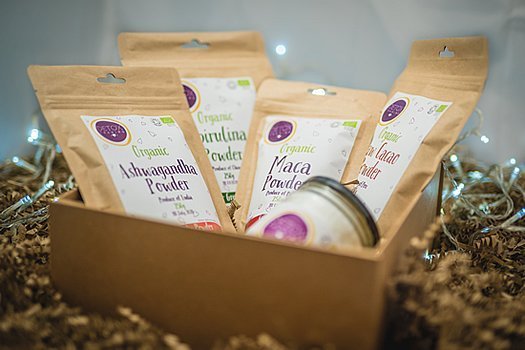It seems nearly every day we are hearing about the latest ‘superfood’, how it’s meant to be beneficial for our health, but what exactly makes a food a superfood, and how can we go about including it into our everyday lives?
There is no single food, regular or ‘super’, that can offer all the nutrition, health benefits, and energy we need to nourish ourselves. It’s recommended that we combine healthy choices from across all food groups while paying attention to calorie limits. Healthy dietary patterns can reduce the risk of high blood pressure, heart disease, diabetes, and certain cancers.
There are, however, a few foods that can be singled out for special recognition. These “superfoods” offer some very important nutrients that can power-pack your meals and snacks, and further enhance a healthy eating pattern. Popsugar has the low down on the best superfoods for 2020.
High in fibre, berries are naturally sweet, and their rich colours mean they are high in antioxidants and disease-fighting nutrients. If particular berries are out of season, it’s easy, and just as healthy, to buy them frozen. Add to yoghurt, cereals, and smoothies, or eat plain for a snack.
Fish can be a good source of protein and omega-3 fatty acids, which help prevent heart disease. Buy fresh, frozen, or canned fish. Fish with the highest omega-3 content are salmon, tuna steaks, mackerel, herring, trout, anchovies, and sardines.
Dark, leafy greens are a good source of vitamin A, vitamin C, and calcium, as well as several phytochemicals (chemicals made by plants that have a positive effect on your health). They also add fibre to the diet.
Try varieties such as spinach, swiss chard, kale, collard greens, or mustard greens. Throw them into salads or sauté them in a little olive oil. You can also add greens to soups and stews.
Hazelnuts, walnuts, almonds, pecans — nuts are a good source of plant protein. They also contain monounsaturated fats, which may be a factor in reducing the risk of heart disease. Add a handful to oatmeal or yoghurt, or have as a snack. But remember they are calorically dense, so limit to a small handful.
Olive oil is a good source of vitamin E, polyphenols, and monounsaturated fatty acids, all which help reduce the risk of heart disease. Use in place of butter or margarine in pasta or rice dishes. Drizzle over vegetables, use as a dressing, or when sautéing.
Whole grains. A good source of both soluble and insoluble fibre, whole grains also contain several B vitamins, minerals, and phytonutrients. They have been shown to lower cholesterol and protect against heart disease and diabetes. Try having a bowl of oatmeal for breakfast. When buying bread at the supermarket, look to see that the first ingredient is “100% whole wheat flour.”
A good source of calcium and protein, yoghurt also contains live cultures called probiotics. These “good bacteria” can protect the body from other, more harmful bacteria. Try eating more yoghurt, but watch out for fruited or flavoured yoghurts, which contain a lot of added sugar. Buy plain yoghurt and add your own fruit.
If you’re looking for UK superfood suppliers, blends and supplements, then visit us today!

